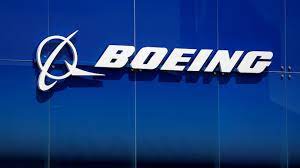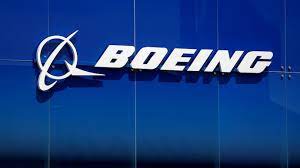
The safety problem at Boeing has upset airline officials, and they are furious. But they are forced to work with the American planemaker in a competitive market for large planes provided by two companies.
Carriers are still in the process of negotiating new plane purchases, hoping to take advantage of Boeing's delays in order to gain better terms, despite some public demonstrations of anxiety (United Airlines CEO Scott Kirby rushed to France to negotiate with Airbus as Boeing's latest problem emerged).
Following a mid-flight cabin blowout on January 5 that revealed issues with safety and quality control in its manufacturing processes, Boeing's delivery timetable is facing significant delays. But switching to rival Airbus is impossible because of its existing order backlog.
Rather of losing ground to Boeing, airlines are attempting to stay competitive by employing a range of tactics, such as placing orders for one model of aircraft as a stand-in for potential deliveries of another. Additionally, they are pushing for greater pay and discounts on future purchases from the planemaker by using production delays as leverage in negotiations.
"Whether they like it or not, Boeing customers don't have much of a choice except to stick with Boeing," stated Scott Hamilton, managing director of the aviation consulting business Leeham Company.
Kirby has been one of the most outspoken in his criticism of Boeing.
After authorities grounded all of United's Boeing 737 MAX 9 fleet and raised serious concerns about the certification of the larger model MAX 10, which was supposed to be the backbone of the airline's fleet and was scheduled for delivery this year, he met with Airbus.
Despite having placed an order for 277 MAX 10 aircraft with 200 more options, United decided to consider Airbus' A321neo aircraft as a possible replacement due to the unrest at Boeing. Those discussions created the possibility that Boeing may lose one of its most devoted clients.
Airbus's order book is filled through 2030, though. Kirby stated on Tuesday that although United wants A321 aircraft, it is not prepared to pay a premium for them.
According to a person acquainted with the situation, United is beginning to realise that there won't be a single answer to their MAX 10 issue.
According to the person, United is instead trying to exploit the postponed Boeing order to negotiate better terms for other aircraft. According to Kirby, United has requested that Boeing begin producing MAX 9s for delivery, with the intention of converting those orders into MAX 10s after the aircraft is certified.
A few weeks back, Robert Isom, the CEO of American Airlines, chastised Boeing for its ongoing quality problems and urged the aircraft maker to straighten things out. It ordered its first-ever MAX 10 aircraft last week in order to obtain a replacement for its Airbus A321 aircraft.
The Texas-based airline has had to contend with Boeing's delivery delays, particularly for the 787 Dreamliner, which has increased its expenses and hindered its ability to take advantage of the post-pandemic travel rebound.
Chief Financial Officer Devon May stated that American has negotiated options to convert those orders into MAX 8s or MAX 9s in exchange for a vote of confidence for the struggling MAX 10 programme. Additionally, financial compensation from Boeing for delivery delays is included in its supply contract.
Switching from Boeing would require airlines like Southwest, one of the company's main clients, to alter their business strategy. It would require significant expenditures on technologies, training, and upkeep.
For a long time, Airbus has been courting Southwest with its smaller A220 to replace Boeing's delayed MAX 7. However, CEO Bob Jordan claimed that running several fleets comes at a "significant" cost.
At JP Morgan's industrial conference on Tuesday, Jordan stated, "A strong Boeing is great for Southwest Airlines." "It's great for our industry."
(Source:www.nasdaq.com)
Carriers are still in the process of negotiating new plane purchases, hoping to take advantage of Boeing's delays in order to gain better terms, despite some public demonstrations of anxiety (United Airlines CEO Scott Kirby rushed to France to negotiate with Airbus as Boeing's latest problem emerged).
Following a mid-flight cabin blowout on January 5 that revealed issues with safety and quality control in its manufacturing processes, Boeing's delivery timetable is facing significant delays. But switching to rival Airbus is impossible because of its existing order backlog.
Rather of losing ground to Boeing, airlines are attempting to stay competitive by employing a range of tactics, such as placing orders for one model of aircraft as a stand-in for potential deliveries of another. Additionally, they are pushing for greater pay and discounts on future purchases from the planemaker by using production delays as leverage in negotiations.
"Whether they like it or not, Boeing customers don't have much of a choice except to stick with Boeing," stated Scott Hamilton, managing director of the aviation consulting business Leeham Company.
Kirby has been one of the most outspoken in his criticism of Boeing.
After authorities grounded all of United's Boeing 737 MAX 9 fleet and raised serious concerns about the certification of the larger model MAX 10, which was supposed to be the backbone of the airline's fleet and was scheduled for delivery this year, he met with Airbus.
Despite having placed an order for 277 MAX 10 aircraft with 200 more options, United decided to consider Airbus' A321neo aircraft as a possible replacement due to the unrest at Boeing. Those discussions created the possibility that Boeing may lose one of its most devoted clients.
Airbus's order book is filled through 2030, though. Kirby stated on Tuesday that although United wants A321 aircraft, it is not prepared to pay a premium for them.
According to a person acquainted with the situation, United is beginning to realise that there won't be a single answer to their MAX 10 issue.
According to the person, United is instead trying to exploit the postponed Boeing order to negotiate better terms for other aircraft. According to Kirby, United has requested that Boeing begin producing MAX 9s for delivery, with the intention of converting those orders into MAX 10s after the aircraft is certified.
A few weeks back, Robert Isom, the CEO of American Airlines, chastised Boeing for its ongoing quality problems and urged the aircraft maker to straighten things out. It ordered its first-ever MAX 10 aircraft last week in order to obtain a replacement for its Airbus A321 aircraft.
The Texas-based airline has had to contend with Boeing's delivery delays, particularly for the 787 Dreamliner, which has increased its expenses and hindered its ability to take advantage of the post-pandemic travel rebound.
Chief Financial Officer Devon May stated that American has negotiated options to convert those orders into MAX 8s or MAX 9s in exchange for a vote of confidence for the struggling MAX 10 programme. Additionally, financial compensation from Boeing for delivery delays is included in its supply contract.
Switching from Boeing would require airlines like Southwest, one of the company's main clients, to alter their business strategy. It would require significant expenditures on technologies, training, and upkeep.
For a long time, Airbus has been courting Southwest with its smaller A220 to replace Boeing's delayed MAX 7. However, CEO Bob Jordan claimed that running several fleets comes at a "significant" cost.
At JP Morgan's industrial conference on Tuesday, Jordan stated, "A strong Boeing is great for Southwest Airlines." "It's great for our industry."
(Source:www.nasdaq.com)














